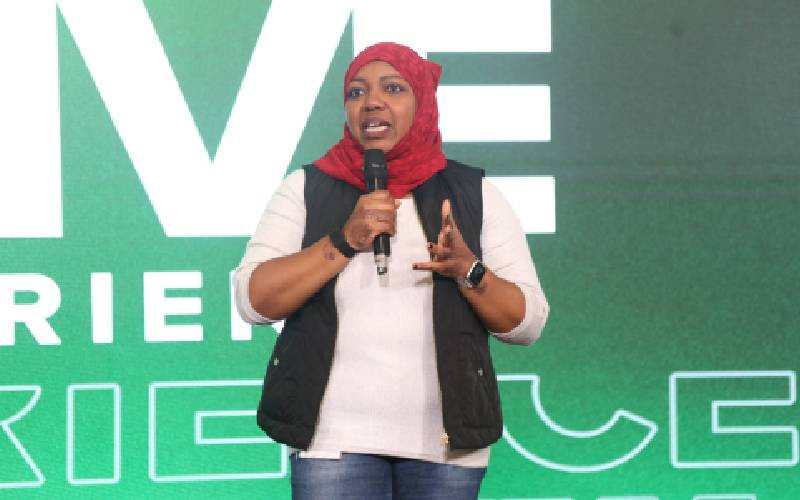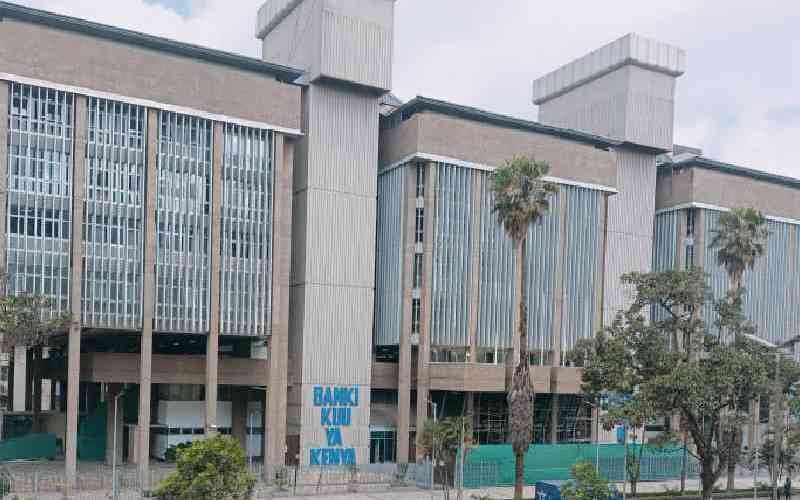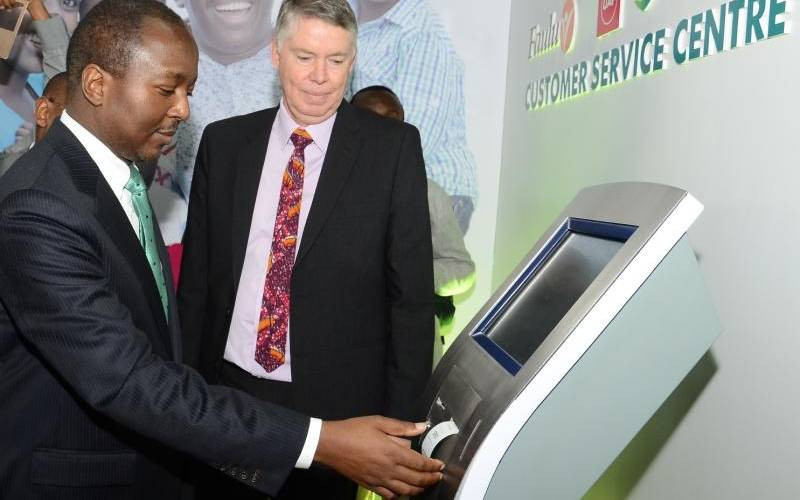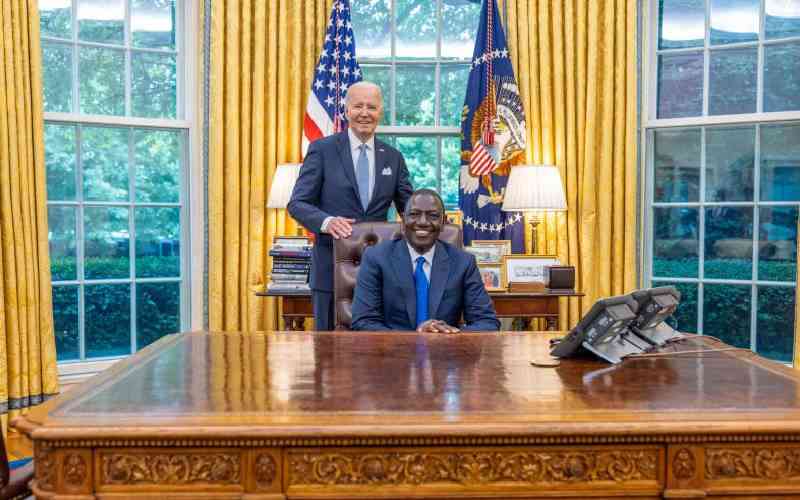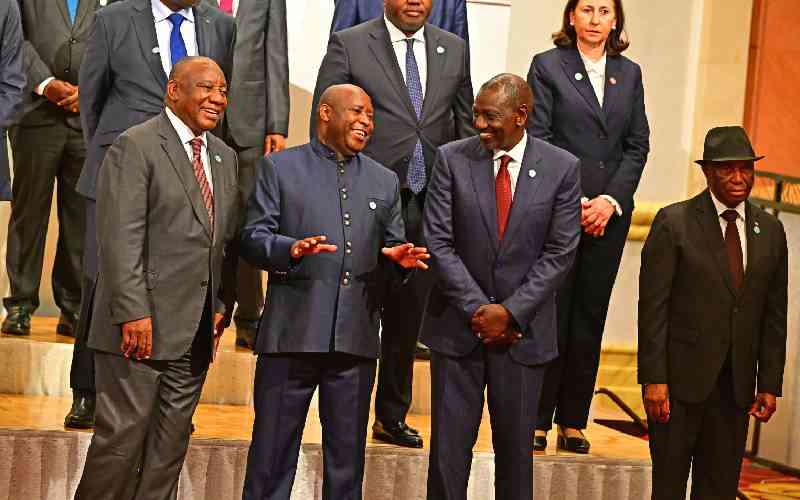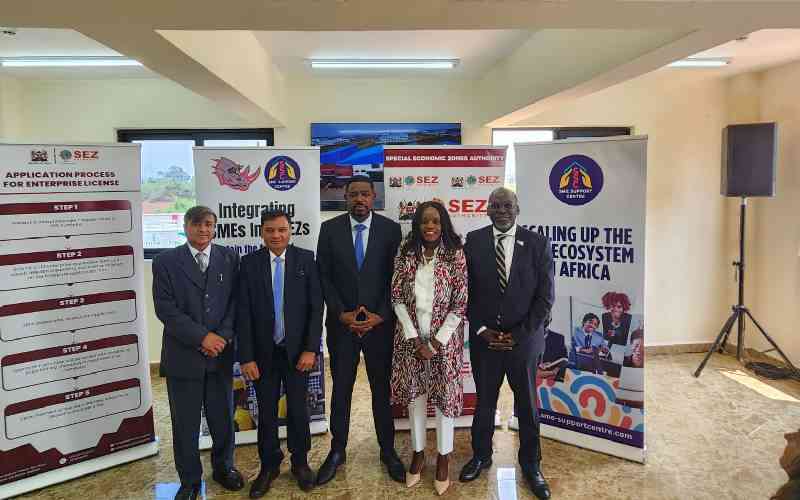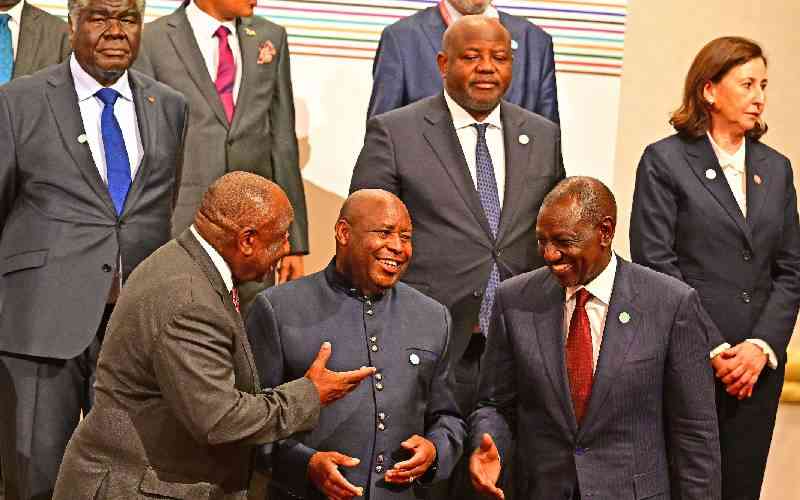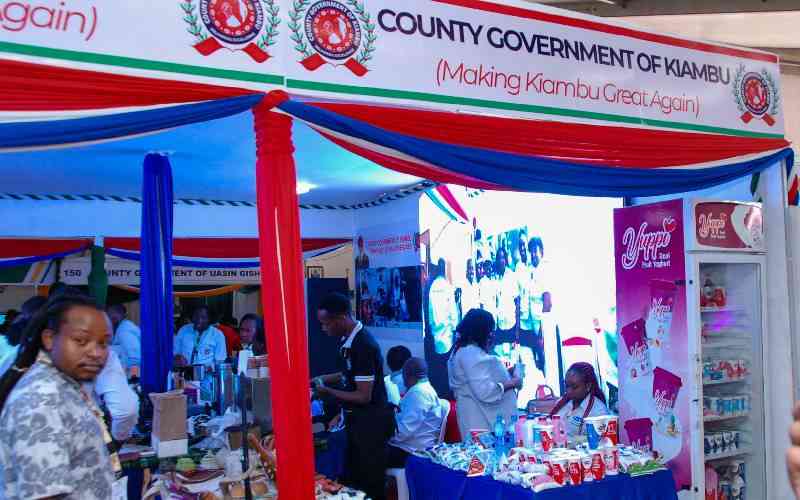
Kiambu county exhibition stand at Devolution Conference, in Homa Bay, on August 14, 2025. [Michael Mute, Standard]
On August 13, 2025, Homa Bay County became the epicentre of Kenya’s governance conversation as over 10,000 delegates gathered for the 9th Devolution Conference. Under the banner 'For the People, For Prosperity: Devolution as a Catalyst for Equity, Inclusion and Social Justice,' the event didn’t just showcase lofty ideals, it laid bare the true priorities of our county governments.
I write this fully aware that my views may clash with the prevailing sentiment praising our county governments. But that’s precisely why this perspective matters. It’s time we cut through the applause and examine the more profound truths, because blind celebration without scrutiny is a dangerous path.
As governors showcased their innovations before President William Ruto, one theme rang louder than the rest: Efficiency in revenue collection. On the surface, it sounded like progress. But beneath the applause lay a troubling truth; county governments seem more invested in systems that extract from citizens than those that uplift and empower them. Let me explain.
The much-praised Governor Irungu Kang’ata of Murang’a County showcased a suite of digital tools designed to automate revenue collection and administrative processes. These included systems for parking fees, market levies, quarrying, land services, fleet management, hospital file portals, and even a farmer support initiative in partnership with Cooperative Bank. On the surface, these innovations are commendable. But a closer look reveals a troubling pattern: They are all extractive.
While this is a good start, it is time our country and political leaders look beyond these types of innovations. Among the innovations presented by Kangata to the President, the Inua Mkulima is an empowering one.
Extractive innovations are those that prioritise government efficiency in collecting revenue, often at the expense of citizen empowerment. They optimise the State’s ability to tax, fine, and regulate, but do little to support the very people who generate that revenue. In contrast, inclusive innovations could be designed to spread opportunity, nurture productivity, and create wealth across the population.
The celebrated book, Why Nations Fail: The Origins of Power, Prosperity, and Poverty by Daron Acemoglu and James A. Robinson, warns against extractive political systems that concentrate power and resources in the hands of a few. In our case, we can talk of systems that draw resources from the people to a central coffer without having ways of reinvesting them back into the soil on which they are harvested.
Such systems inevitably lead to stagnation and poverty. Kenyan counties, it seems, are drifting toward this model, building digital toll booths for extracting revenue from the economy while neglecting innovations that empower the “cow” that they milk.
Where are the innovations that ensure our roads are durable and accessible? Where are innovations to ensure county staff are hired based on merit and inclusivity? Where are innovations to ensure that businesses are protected from corruption and disruption? Where are innovations to ensure SMEs, the backbone of our economy, are incentivised and supported to grow?
Aren’t systems that foster inclusive development supposed to be part of the conference innovations? I wish I could ask this question more leniently.
We must agree that devolution was never meant to be a decentralised tax machine. It was envisioned as a tool for empowerment, bringing governance closer to the people and tailoring solutions to local needs. That vision is being lost in a flurry of dashboards and portals that serve government coffers more than citizen welfare.
What Kangata is doing in 2025, which the other 46 counties are envying, was the foundation that was supposed to be laid in the first five years after the 2010 Constitution came into effect over ten years ago. Regrettably, this wasn’t done.
Our national and county governments must rethink the future of the nation. We must build systems that enable wealth creation, not just wealth extraction. Only then can we sustainably raise revenue, improve living standards, and fulfill the promise of devolution.
Dr Ndonye is the Dean of Kabarak University’s School of Music and Media
Stay informed. Subscribe to our newsletter

